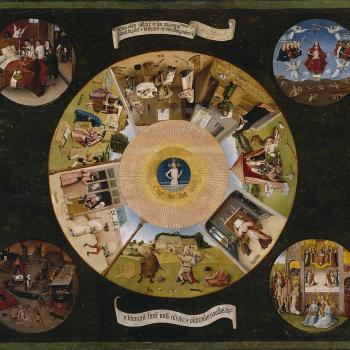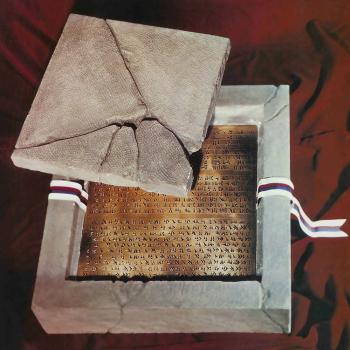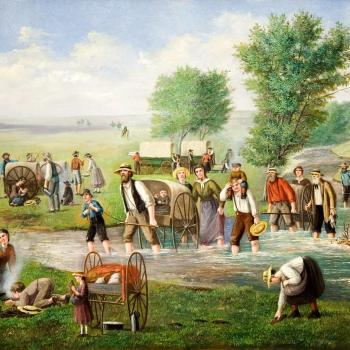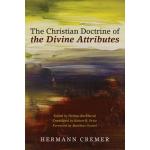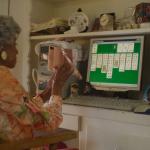
I just sent the note below to a niece and two nephews, the three children of my late brother and his now also-departed wife, and, indirectly perhaps, to their children and grandchildren. I thought that somebody else might also find a little value in it, or take some comfort from it.
I want to say how sorry we are about the passing of your mother, grandmother, and great grandmother. Words are inadequate. In a way, though, we have little else to offer. Most of what we say and do, most of what we usually think is important and worthwhile, shrinks dramatically in the face of losing a dearly loved person.
It’s difficult to think of her as gone; she was (at least, as seen from my fairly distant vantage point) so remarkably unchanged over the years, until (of course) her sudden and surprising recent health crisis. She seemed ageless.
It’s natural and appropriate to grieve over your loss. But I hope that you’ll soon be able to reflect, too, on what you were so fortunate to have had.
Both of my grandfathers died before I was born, so I never knew them. And then both of my grandmothers died when I was five.
My maternal grandmother had been living hundreds of miles away from us, in Utah, and I’m unaware of having any personal memories of her. What I do “remember,” I think, stems merely from photographs of her. Curiously, what seems to me one of my earliest memories altogether comes from the time of her funeral. The memory is very brief and vague: It involves only my being out in the sunlight on the lawn in front of the funeral home in St. George. Just that. A glimpse. I don’t even remember what I was doing.
Of my paternal grandmother, I recall only a voice—somewhat “breathy” and tremulous, as the voices of some very elderly people become, and with a thick Norwegian accent. For her last several years, she lived about thirty minutes away from my home in southern California. But is it really the voice of my grandmother that I’m remembering? I’m not sure. I think that it may actually be the voice of her younger sister, Christina, who ultimately lived to be 104 and who once visited us for a while in California when I was quite young. I still have distinct images from that visit in my mind; curiously, she gave me an upright figurine of a Royal Canadian mounted policeman, in a cardboard box with a transparent, clear plastic front. Presumably, she brought me that gift because she lived up in North Dakota, not too far from the border with Canada. I never removed it from the box, but it sat on a shelf in my bedroom for a long time. I wonder where it is now.
I never missed having grandparents. In a sense, I’d never really had any. As I grew up, though, and as I saw other kids my age going off to grandparents’ houses, taking vacations with Grandma and Grandpa, and the like, I sometimes idly wondered what it would have been like to have had that additional dimension in my personal life, in my family. My wife had grandparents in attendance at our wedding. My children, well into their thirties, still have a grandfather. He lives on his own and remains quite sharp in his ninety-seventh year. We visit with him frequently.
What I’m trying to suggest, at this difficult time, is that you and your children have been very fortunate to have had your mother with you as long as you did. The loss is the greater for you now precisely because she’s been actively present in your lives. As the pain begins to subside—and, although I know that there are moments when you think it impossible, it will subside—I hope that that very great blessing, of having had her with you and with your children for enough time that many of them will retain memories of her, will become more and more comforting to you. And I hope that it will inspire you to continue to try to make memories for your own children and grandchildren.
You three children are now the patriarchs and the matriarch of your families, at least in this line. The generation that raised you is gone, or is going. And you, too, will eventually recede into the past—as will I (probably much sooner). With this in mind, we should try to leave a positive legacy, not just of material things but, beyond those basic needs, of stories and experiences and eternal family ties. (The Restored Gospel is so precious at times like this!)
In the meantime, though, I want to share with you a poem written by the American author, educator, diplomat, and clergyman Henry Van Dyke (1852-1933);
I am standing upon the seashore. A ship, at my side,
spreads her white sails to the moving breeze and starts
for the blue ocean. She is an object of beauty and strength.
I stand and watch her until, at length, she hangs like a speck
of white cloud just where the sea and sky come to mingle with each other.Then, someone at my side says, “There, she is gone.”
Gone where?
Gone from my sight. That is all. She is just as large in mast,
hull and spar as she was when she left my side.
And, she is just as able to bear her load of living freight to her destined port.Her diminished size is in me — not in her.
And, just at the moment when someone says, “There, she is gone,”
there are other eyes watching her coming, and other voices
ready to take up the glad shout, “Here she comes!”And that is dying.
I expect that my brother was there in the welcoming party when your mother (your grandmother, your great grandmother) arrived. In my mind, I see him happily exclaiming “Here she comes!”
The sadness on our side of the veil is equaled—actually, I believe, it is far surpassed—by the joy on the other side. The books are balanced. In fact, owing to divine grace, they’ll be far more than balanced—and in our favor. If we can at least try to keep that fact in our minds, it will, I think, help us to make a quiet peace, over time, with the temporary loss of those we’ve loved. Our reunion there won’t be temporary. It will be eternal.
Posted from Bat Yam, Israel





